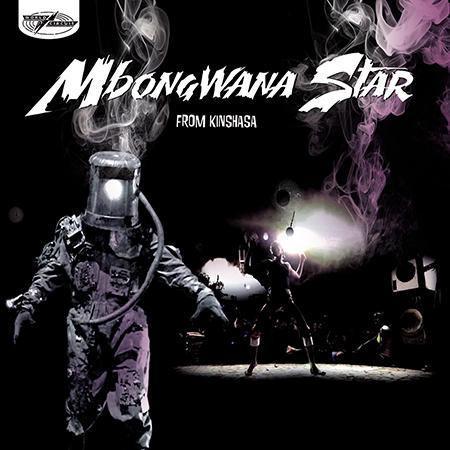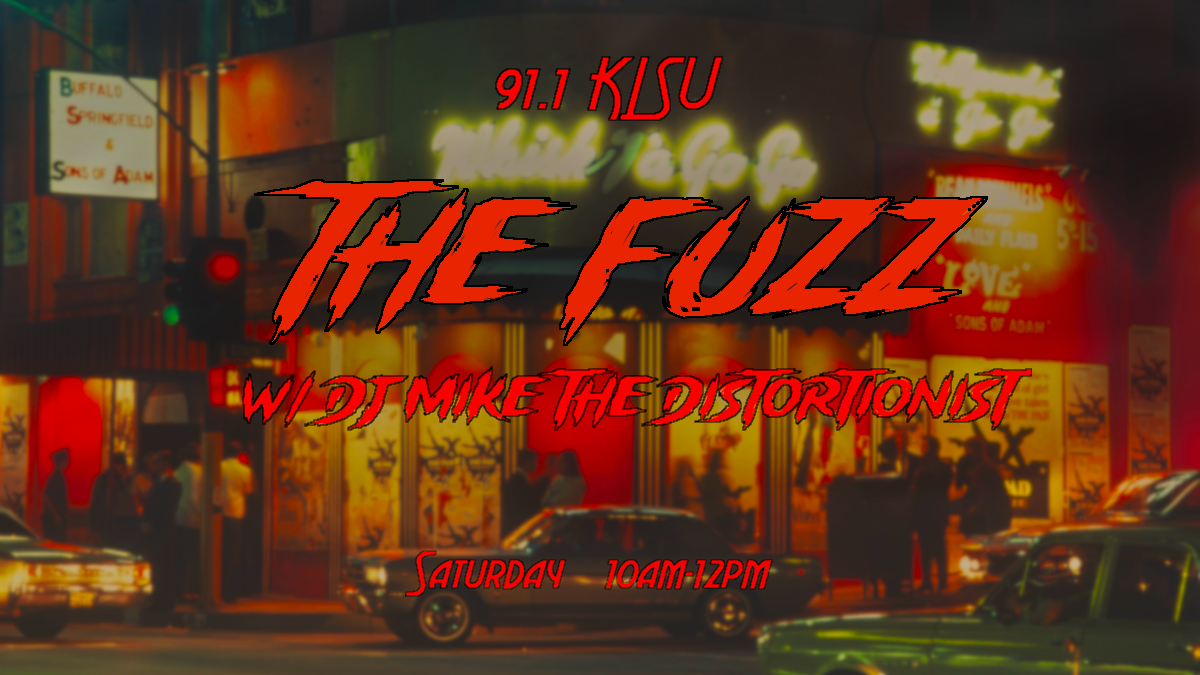Kinshasa, the capital city of the Democratic Republic of the Congo, has for the last decade been home to a unique and burgeoning music scene. Since the early 2000’s, a number of groups in the suburbs of the city have adopted a peculiarly do-it-yourself approach to music-making; lacking the luxury of traditional amplification, these musicians built their amplification systems and even some of their instruments out of old magnets and other trash salvaged from scrap yards. This improvised instrumentation gave the groups a uniquely distorted sound, mutating the traditional Bazombo trance music that they played into something wholly distinct. Bands such as Konono No. 1, Staff Benda Bilili, and the Kasai Allstars pioneered this new scene, and Mbongwana Star, with their debut album From Kinshasa, are the latest group to develop from it.
Comprised of two members of the now-defunct Staff Benda Bilili (Coco Ngambali and Theo Nsituvuidi) along with four other musicians from the streets of Kinshasa and produced by Liam Farrell (a French-Irish producer who has collaborated with afrobeat legend Tony Allen, among others), Mbongwana Star presents both an expansion and a refinement of the Kinshasa sound. Thanks to Farrell’s production chops, this music has never sounded more cleanly produced than it does here, but the polish doesn’t come at the expense of the distinct character of the sound. Rather, the band has taken advantage of the capabilities of the studio to develop an even more varied and avant-garde style than that of its predecessors. Each track possesses its own particular mood and tone, and each one leaves the mind reeling with a unique menagerie of noise.
The album’s standout track, “Malukayi,” features the characteristic sound of Konono No. 1’s distorted likembé, which carries the track with the most memorable riff on the album. Other highlights include “Nganshé,” an energetic number that speeds ahead with skittering percussion cut through by post-punk guitar lines, and “Masobélé,” which rolls around in the distorted vocals of Ngambali and Nsituvuidi, pulled along by a muscular bassline. Album closer “1 million c’est quoi?” leaves a good impression as well, with a powerful groove and affecting chorus.
Even the album’s less immediate tracks show a depth of intricacy on repeat listens; the ghostly call and response that rises out of “Shégué,” the graceful glide of “Coco Blues,” and the dark melody of “Kimpala.” Almost every track adds a strong and nuanced element to the whole. The only exception is “Kala,” which never manages to develop its hefty electro groove into anything quite as detailed as the other tracks’ offerings. However, it still doesn’t throw the album off its course, feeling right at home with the style of its surroundings.
A strong and diverse effort through and through, Mbongwana Star’s debut cements the band as one of the most original groups to come out of Africa as a whole in recent years. Pushing the Kinshasa sound to new heights (to the moon, as the opening track claims), the band offers a style both rooted in tradition and committed to its own evolution. I’ll be waiting with baited breath for news of what they do next, and interested readers should watch out for live dates; according to producer Liam Farrell, “the live show is even more exciting than the album.” I’m certainly ready to find out.
Album Review: Mbongwana Star – From Kinshasa
November 12, 2015







